The publisher and author gratefully acknowledge the review of proofs for this book by historian Michael K. Honey. For more information on the topic, consult Professor Honeys definitive, award-winning account of the history, Going Down Jericho Road: The Memphis Strike, Martin Luther Kings Last Campaign (W. W. Norton & Company, 2007).
Published by the National Geographic Society
John M. Fahey, Jr., CHAIRMAN OF THE BOARD
AND CHIEF EXECUTIVE OFFICER
Timothy T. Kelly, PRESIDENT
Declan Moore, EXECUTIVE VICE PRESIDENT ;
PRESIDENT, PUBLISHING
Melina Gerosa Bellows, EXECUTIVE VICE PRESIDENT ;
CHIEF CREATIVE OFFICER, BOOKS, KIDS, AND FAMILY
Prepared by the Book Division
Nancy Laties Feresten, SENIOR VICE PRESIDENT ,
EDITOR IN CHIEF, CHILDRENS BOOKS
Jonathan Halling, DESIGN DIRECTOR ,
BOOKS AND CHILDRENS PUBLISHING
Jay Sumner, DIRECTOR OF PHOTOGRAPHY ,
CHILDRENS PUBLISHING
Jennifer Emmett, EDITORIAL DIRECTOR ,
CHILDRENS BOOKS
Carl Mehler, DIRECTOR OF MAPS
R. Gary Colbert, PRODUCTION DIRECTOR
Jennifer A. Thornton, MANAGING EDITOR
Staff for This Book
Jennifer Emmett, PROJECT EDITOR
Eva Absher, ART DIRECTOR
Lori Epstein, SENIOR ILLUSTRATIONS EDITOR
Marty Ittner, DESIGNER
Grace Hill, ASSOCIATE MANAGING EDITOR
Joan Gossett, PRODUCTION EDITOR
Lewis R. Bassford, PRODUCTION MANAGER
Susan Borke, LEGAL AND BUSINESS AFFAIRS
Kate Olesin, EDITORIAL ASSISTANT
Kathryn Robbins, DESIGN PRODUCTION ASSISTANT
Hillary Moloney, ILLUSTRATIONS ASSISTANT
Manufacturing and Quality Management
Christopher A. Liedel, CHIEF FINANCIAL OFFICER
Phillip L. Schlosser, SENIOR VICE PRESIDENT
Chris Brown, TECHNICAL DIRECTOR
Nicole Elliott, MANAGER
Rachel Faulise, MANAGER
Robert L. Barr, MANAGER
COVER : The cover illustration combines a view taken of Martin Luther King, Jr., on the day before his death with a scene of striking Memphis workers before the attempted protest of March 28, 1968. Endpapers replicate popular protest signs from Memphis civil rights events in 1968. Pickets march past armed troops on March 29, 1968 (title page). Garbage accumulates in the street of an African-American neighborhood in 1968 (table of contents).
 The National Geographic Society is one of the worlds largest nonprofit scientific and educational organizations. Founded in 1888 to increase and diffuse geographic knowledge, the Society works to inspire people to care about the planet. National Geographic reflects the world through its magazines, television programs, films, music and radio, books, DVDs, maps, exhibitions, live events, school publishing programs, interactive media and merchandise. National Geographic magazine, the Societys official journal, published in English and 33 local-language editions, is read by more than 38 million people each month. The National Geographic Channel reaches 320 million households in 34 languages in 166 countries. National Geographic Digital Media receives more than 15 million visitors a month. National Geographic has funded more than 9,400 scientific research, conservation and exploration projects and supports an education program promoting geography literacy. For more information, visit nationalgeographic.com.
The National Geographic Society is one of the worlds largest nonprofit scientific and educational organizations. Founded in 1888 to increase and diffuse geographic knowledge, the Society works to inspire people to care about the planet. National Geographic reflects the world through its magazines, television programs, films, music and radio, books, DVDs, maps, exhibitions, live events, school publishing programs, interactive media and merchandise. National Geographic magazine, the Societys official journal, published in English and 33 local-language editions, is read by more than 38 million people each month. The National Geographic Channel reaches 320 million households in 34 languages in 166 countries. National Geographic Digital Media receives more than 15 million visitors a month. National Geographic has funded more than 9,400 scientific research, conservation and exploration projects and supports an education program promoting geography literacy. For more information, visit nationalgeographic.com.
For more information, please call 1-800-NGS LINE
(647-5463) or write to the following address:
National Geographic Society
1145 17th Street N.W.
Washington, D.C. 20036-4688 U.S.A.
Visit us online at www.nationalgeographic.com/books
For librarians and teachers: www.ngchildrensbooks.org
More for kids from National Geographic:
kids.nationalgeographic.com
For rights or permissions inquiries, please contact National Geographic Books Subsidiary Rights:
Library of Congress Cataloging-in-Publication Data
Bausum, Ann.
Marching to the mountaintop : how poverty, labor fights, and civil rights set the stage for Martin Luther King, Jr.s final hours / by Ann Bausum. 1st ed.
p. cm.
Includes bibliographical references.
eISBN: 978-1-4263-0945-8
1. King, Martin Luther, Jr., 1929-1968Juvenile literature. 2. King, Martin Luther, Jr., 1929-1968AssassinationJuvenile literature. 3. Sanitation Workers Strike, Memphis, Tenn., 1968Juvenile literature. 4. Labor movementTennesseeMemphisHistory20th centuryJuvenile literature. 5. African AmericansTennesseeMemphisSocial conditions20th centuryJuvenile literature. 6. Memphis (Tenn.)Race relationsHistory20th centuryJuvenile literature. I. Title.
E185.97.K5B38 2012
323.092dc23
[B]
2011024661
Text copyright 2012 Ann Bausum.
Compilation copyright 2012 National Geographic Society.
All rights reserved. Reproduction of the whole or any part of the contents without written permission from the publisher is prohibited.
v3.1
For the people of Memphis, and for blacks and whites everywhere who have fought against racism, including my fourth-grade teacherChristine Warrenwho was on the front lines of school integration in 1966-67. All that, and you helped me love to read, too! Thank you, Mrs. Warren! AB
CONTENTS
FOREWORD
By Reverend James Lawson
T here are very rare, peculiar moments in history when we humans are allowed to catch a glimpse at the vision of a fairer world, and when we experience the nobility and joy of being fully alive as children of life. This book, Marching to the Mountaintop, describes such a moment in the emergence of a nonviolent direct action movement (the intensified years in the journey of Martin Luther King, Jr., 1953-1973, and the garbage workers strike of Memphis 1968).
Ann Bausum has given us a beautiful and inspiring account capturing much of the drama of our struggle in a comprehensive fashion and also pointing us towards the larger frame of what is called the civil rights movement. I hope that you will drink deeply from the portrait of Dr. Kingmy Moses and colleague from 1955 to 1968. I urge you to also hear and feel the character, courage, and compassion of the 1,300 workers who had the temerity to insist I am a man.
I like to call the civil rights movement the second American revolution. The first one in 1776 excluded the human rights of women, Native Americans, millions of slaves, black people, Mexican Americans, Chinese Americans, and others. The second one was largely nonviolent (a concept coined by Mohandas K. Gandhi, the father of the science of nonviolent social change) and effectively caused our Constitution to be declared as including all residents of our land.
All through this book, you will see the sheer human dignity of ordinary people, younger and older, provoked by the example of the 1,300 workers and their wives and families. These working families did not allow the nature of their daily hard labor and its ethos of racism to blot out their humanity or their insistence that one day their work would lift them out of abject poverty. This quest for human dignityequality, liberty, and justice for allis the soul of the sanitation strike and the civil rights movement. After all, we humans have been birthed to be humanin the likeness of God. Nothing less can even begin to satisfy our lives.




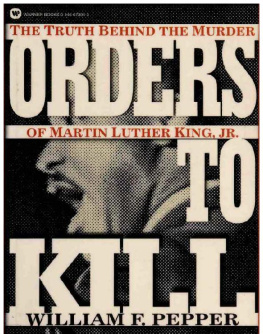
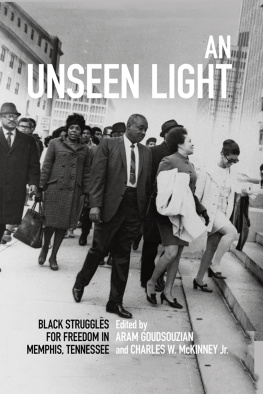
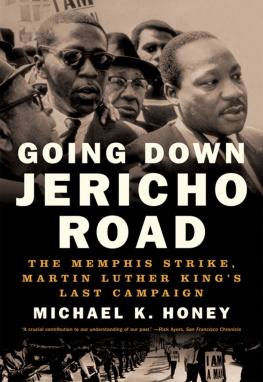
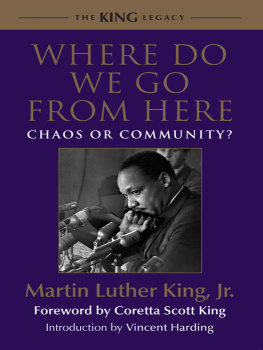
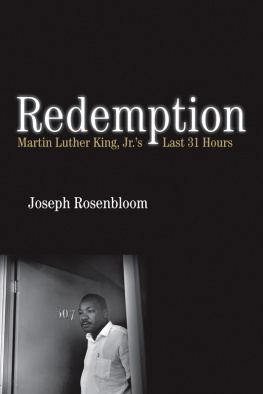
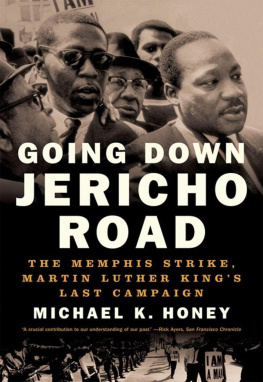
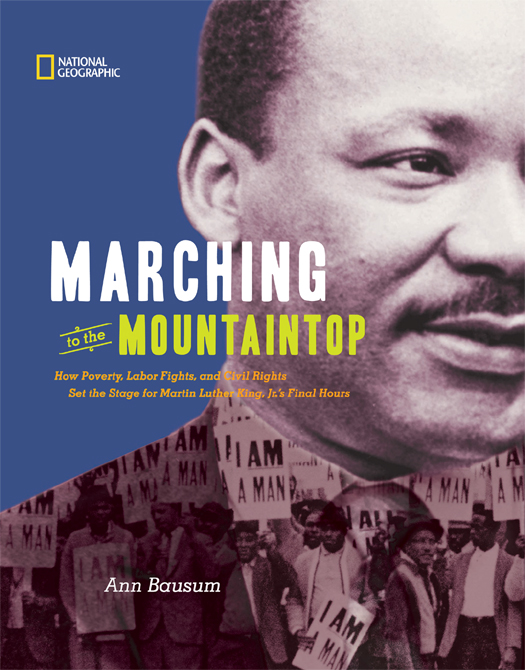
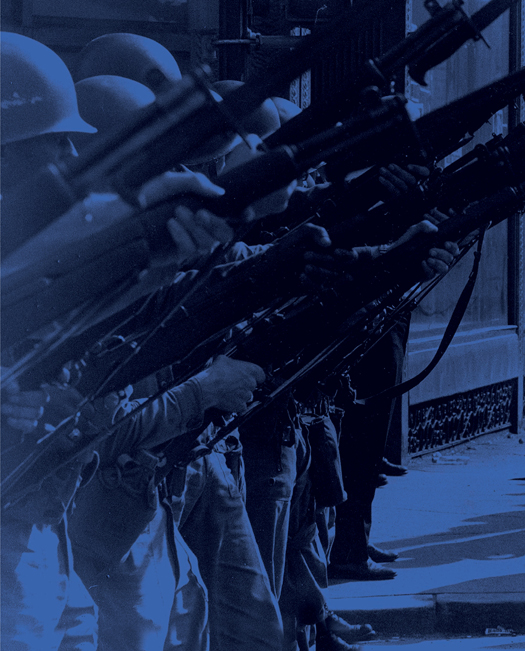

 The National Geographic Society is one of the worlds largest nonprofit scientific and educational organizations. Founded in 1888 to increase and diffuse geographic knowledge, the Society works to inspire people to care about the planet. National Geographic reflects the world through its magazines, television programs, films, music and radio, books, DVDs, maps, exhibitions, live events, school publishing programs, interactive media and merchandise. National Geographic magazine, the Societys official journal, published in English and 33 local-language editions, is read by more than 38 million people each month. The National Geographic Channel reaches 320 million households in 34 languages in 166 countries. National Geographic Digital Media receives more than 15 million visitors a month. National Geographic has funded more than 9,400 scientific research, conservation and exploration projects and supports an education program promoting geography literacy. For more information, visit nationalgeographic.com.
The National Geographic Society is one of the worlds largest nonprofit scientific and educational organizations. Founded in 1888 to increase and diffuse geographic knowledge, the Society works to inspire people to care about the planet. National Geographic reflects the world through its magazines, television programs, films, music and radio, books, DVDs, maps, exhibitions, live events, school publishing programs, interactive media and merchandise. National Geographic magazine, the Societys official journal, published in English and 33 local-language editions, is read by more than 38 million people each month. The National Geographic Channel reaches 320 million households in 34 languages in 166 countries. National Geographic Digital Media receives more than 15 million visitors a month. National Geographic has funded more than 9,400 scientific research, conservation and exploration projects and supports an education program promoting geography literacy. For more information, visit nationalgeographic.com.